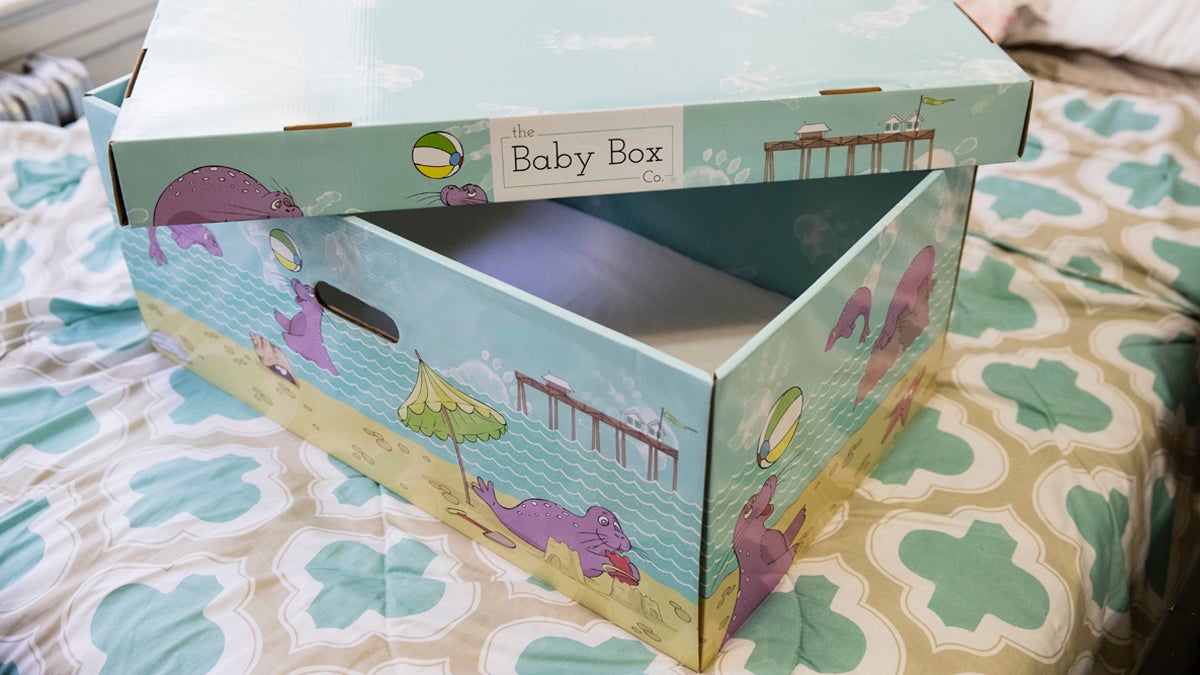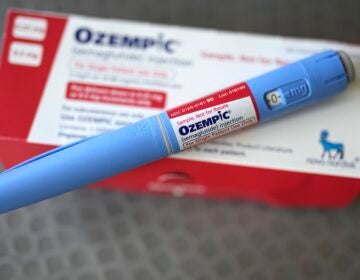‘Baby box’ effort to prevent SIDS advances with N.J. lawmakers’ help

Displayed at the home of Dolores Peterson is a box that can be uses as a crib in Camden, N.J., Monday, March 6, 2017. New Jersey became the first state to send newborn babies and their parents home with a box that doubles as a crib and full of necessities, with the aim of cutting back on sudden infant death syndrome. (Matt Rourke/AP Photo)
A bill advanced by a New Jersey Assembly committee would require the Department of Children and Families to put easily printable and updated information on its website about the “baby box” program.
After registering online at babyboxuniversity.com, watching a video about safe sleep, and taking a short quiz, expecting and new parents in New Jersey can obtain one of the free laminated cardboard boxes with a snug, fitted mattress.
Placing babies in the small, confined area is an effort to prevent suffocation.
Cooper University Health Care Dr. Kathie McCans, who chairs the state’s child fatality and near fatality review board, said the goal is to get out the word on safe sleep.
“Most people are waiting for their mom and their sister-in-law and other people to tell them what do I do with this baby,” said said Monday. “Things change over time, and what we thought was really safe and good practice 20 years ago, it’s different today.”
Since the program began in January, more than 15,000 state residents have accessed the safety information and 7,000 boxes have been distributed, according to Dr. Caleb Hudgins with the Baby Box Company.
“Educational programs on safe sleep practices like the ones provided through Baby Box University have been shown to reduce infant mortality, particularly sudden infant death syndrome and sudden unexplained infant death,” he said.
Communities where the boxes are widely used will be monitored to see if infant mortality rates drop, Hudgins said.
WHYY is your source for fact-based, in-depth journalism and information. As a nonprofit organization, we rely on financial support from readers like you. Please give today.




